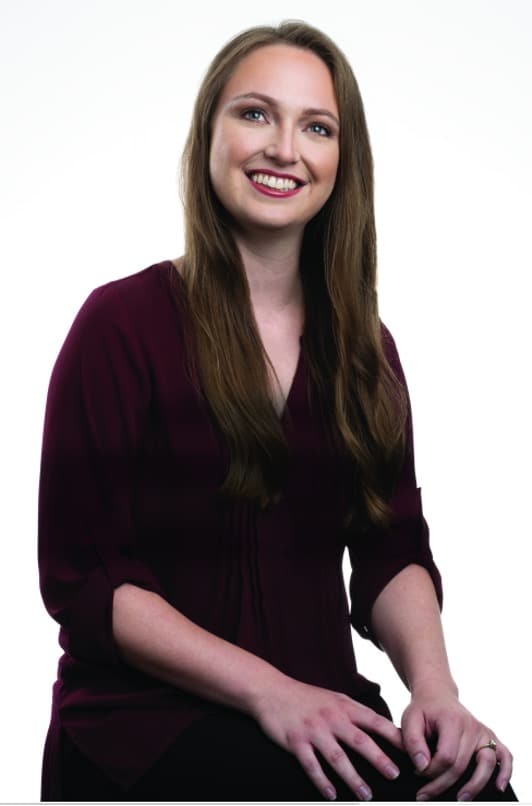
How did you become interested in audiology?
My uncle has a severe hearing loss. He wears a hearing aid and a cochlear implant. Also, my grandfather fought in World War II and as a result, wore hearing aids for many years. So, I grew up around family with hearing loss, but I didn’t realize it was something that I could develop into a career until my undergraduate experience at the University of Wisconsin-Madison. I realized in my intro to audiology class that this was something that I could do to make a difference in people’s lives.
Why did you select UT Dallas and the Callier Center for your graduate education?
I chose UT Dallas because of its top-ranked audiology program (No. 2 in the nation). Not only is the program rigorous, but the clinical training is remarkable. The fact that we’re located in Dallas means that we have access to many different types of clinical placements, and of course, the Callier Center is nationally renowned.
Were you first interested in patient care, research or both?
I have always been excited to be a clinician. I thought that is what I would do for the rest of my life. Research seemed so abstract. I pictured a lonely scientist pipetting things, and then maybe 100 years from now it would become a tangible result. But in my second year, a student presented a translational research paper that was unlike anything I had ever heard. It resonated with me. This type of research had a light at the end of the tunnel, where the results solved everyday clinical problems. She invited me to visit Dr. Edward Lobarinas’ lab, where she worked. I toured the lab and spoke with Dr. Lobarinas, who later became my faculty mentor. I understood why the research was being done, and I could clearly see the impact it could have on patients. I started working in his lab and realized that I loved working in lab as much as I loved working in clinic, so I decided to get my PhD.
According to your faculty mentor, Dr. Edward Lobarinas:
“Monica may be on the cusp of discovering that the ear works in ways that are different than what has previously been assumed. This is the type of paradigm-shifting discovery that is happening at Callier.”
Can you tell us about this research?
When a patient receives a hearing evaluation, an audiologist conducts a range of standard tests to determine if the patient has a hearing loss. In our lab, we study the same hearing tests that are used in the clinic. We found that one of these tests may not be sensitive enough to detect specific kinds of hearing loss that it was previously thought to detect. The reason for this is that we listen with our brains and often the brain can compensate just enough to pass some of the tests in clinic even though hearing may be impaired in other ways. We are learning that normal test results don’t always mean normal hearing.
I’ve been working on ways to make tests more sensitive to patients’ needs and more specific to hearing losses that might go undetected. If our lab is successful, then we can help people who are currently undiagnosed and untreated for that loss. If we find a solution, then we are just steps away from implementing the appropriate hearing test in clinics around the nation, which translates to better diagnoses and treatments for patients everywhere.
What do you hope to achieve after you attain your PhD?
I envision using both of my degrees — seeing patients in clinic, teaching and running a research lab. If I am able to impact the next generation of emerging clinicians or emerging scientists, or if I am able to impact the field of audiology itself, that would be a successful career for me.
What does Callier mean to you?
Callier is home. To me, Callier will always be the place I learned everything I know about audiology and how to care for people with hearing loss.